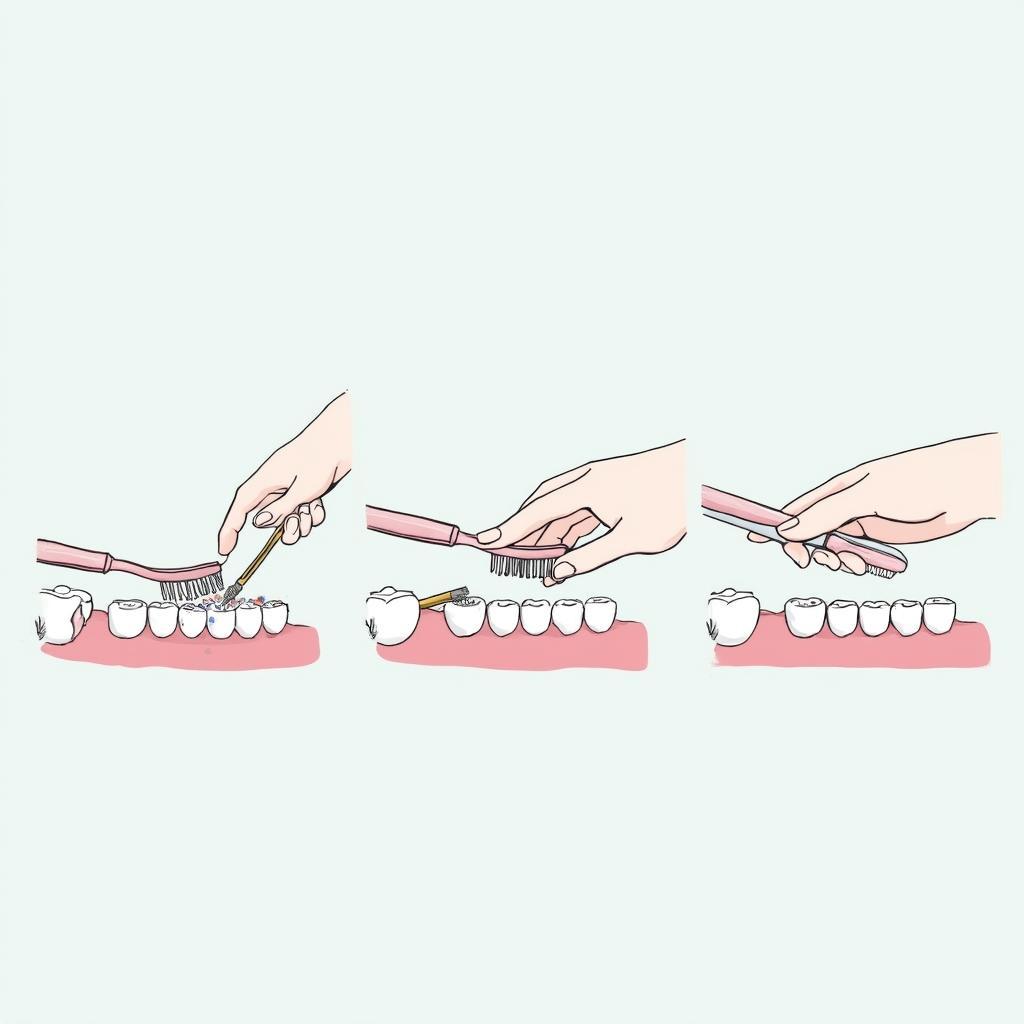Your cart is currently empty!

Essential Oral Care Tips During Treatment
Maintaining good oral hygiene is crucial, especially during medical treatments. Certain medications and therapies can have side effects that impact oral health, making it even more important to follow a diligent oral care routine. This article provides practical advice and tips to help you protect your smile during treatment.
Understanding the Importance of Oral Care During Treatment
Many medical treatments, including chemotherapy and radiation therapy, can weaken the immune system, making the mouth more susceptible to infections and other complications. Dry mouth (xerostomia) is a common side effect of many medications, reducing saliva production which plays a vital role in protecting teeth and gums. Reduced saliva can lead to increased plaque buildup, tooth decay, and gum disease. Oral care during treatment minimizes these risks and promotes overall well-being. What are the specific challenges you might face? Let’s explore them.
Common Oral Health Issues During Treatment
- Dry Mouth: This can lead to discomfort, difficulty swallowing, and increased risk of infection.
- Mouth Sores: These can be painful and make eating and speaking challenging. They can also increase the risk of infection.
- Gum Inflammation: Medical treatments can make gums more sensitive and prone to bleeding and inflammation.
- Changes in Taste: Some treatments can alter taste perception, making food less enjoyable.
- Increased Risk of Infection: A weakened immune system increases the susceptibility to oral infections.
Practical Oral Care Tips During Treatment
Following a consistent oral care routine is paramount during medical treatment. Here are some practical tips to help you maintain optimal oral health:
- Brush Gently with a Soft-Bristled Toothbrush: Brush your teeth at least twice a day, after meals, and before bedtime. Use a soft-bristled toothbrush and gentle, circular motions to avoid irritating sensitive gums. You can find more information about maintaining good oral hygiene in this article: mouth care tips in urdu.
- Choose a Fluoride Toothpaste: Fluoride helps strengthen teeth and prevent cavities. Consult your doctor or dentist to determine the best toothpaste for your specific needs.
- Floss Daily: Flossing removes food particles and plaque from between teeth, where your toothbrush can’t reach.
- Use a Tongue Scraper: Gently scraping your tongue helps remove bacteria and improve breath freshness.
- Rinse with an Alcohol-Free Mouthwash: Alcohol-based mouthwashes can dry out your mouth, exacerbating dry mouth symptoms. Opt for an alcohol-free rinse or a saline solution. This is similar to the advice given in our article about skincare: tips para evitar granos en la cara.
- Stay Hydrated: Drink plenty of water throughout the day to help combat dry mouth.
- Avoid Sugary Drinks and Foods: Sugary substances can contribute to tooth decay and worsen oral health problems.
 Illustration of Proper Toothbrushing Technique
Illustration of Proper Toothbrushing Technique
Managing Dry Mouth
Dry mouth can significantly impact your comfort and oral health. Here are some ways to manage this common side effect:
- Sip Water Frequently: Keep a water bottle handy and take small sips throughout the day.
- Chew Sugar-Free Gum or Suck on Sugar-Free Hard Candies: These can stimulate saliva production.
- Use a Saliva Substitute: These products can help moisten your mouth and provide relief from dryness.
- Avoid Caffeine and Alcohol: These substances can dehydrate your mouth.
- Consider a Humidifier: Adding moisture to the air can help alleviate dry mouth symptoms, especially at night. You might find the health tips in this article useful as well: dog health care tips in new york city.
“Maintaining consistent oral hygiene is paramount during medical treatment, as it directly impacts a patient’s overall well-being and recovery,” says Dr. Emily Carter, DDS. “A proactive approach to oral care can minimize discomfort and prevent complications.”
Conclusion
Maintaining optimal oral care during treatment is essential for your comfort and overall health. By following these Oral Care Tips During Treatment, you can proactively address potential issues and maintain a healthy smile. Remember to consult with your doctor or dentist for personalized advice and recommendations based on your specific treatment plan. Looking for ways to treat typhoid fever in adults? Check this out: cara mengobati penyakit tipes pada orang dewasa. You might also find this helpful: tipos de acne en la cara y tratamiento.
“Patients undergoing medical treatment should view oral care as an integral part of their overall care plan,” adds Dr. David Miller, MD. “It’s not just about healthy teeth and gums; it’s about promoting overall well-being.”
Need Support? Contact us via WhatsApp: +1(641)206-8880, Email: [email protected] or visit us at 456 Pine Avenue, Toronto, ON M5V 2J4, Canada. We have a 24/7 customer support team.

Leave a Reply